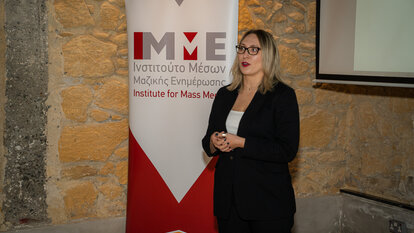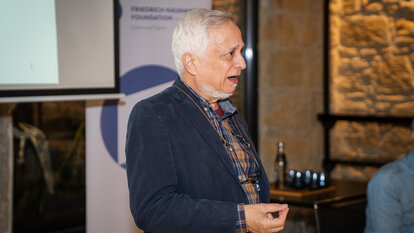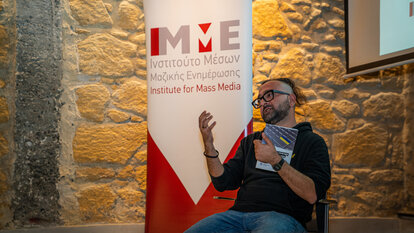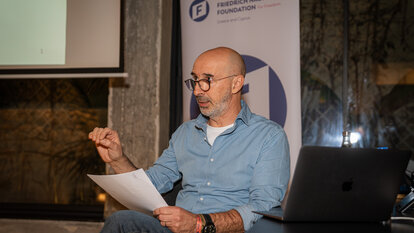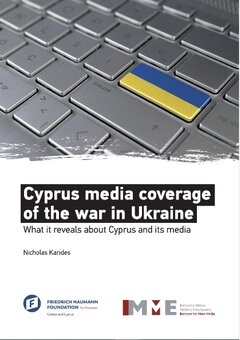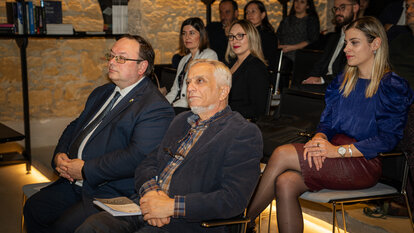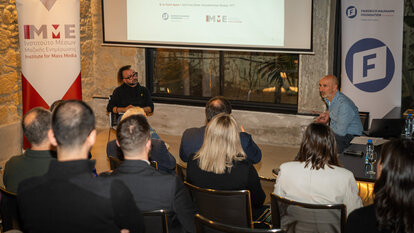MEDIA
Event: Cyprus Media Coverage of the War in Ukraine
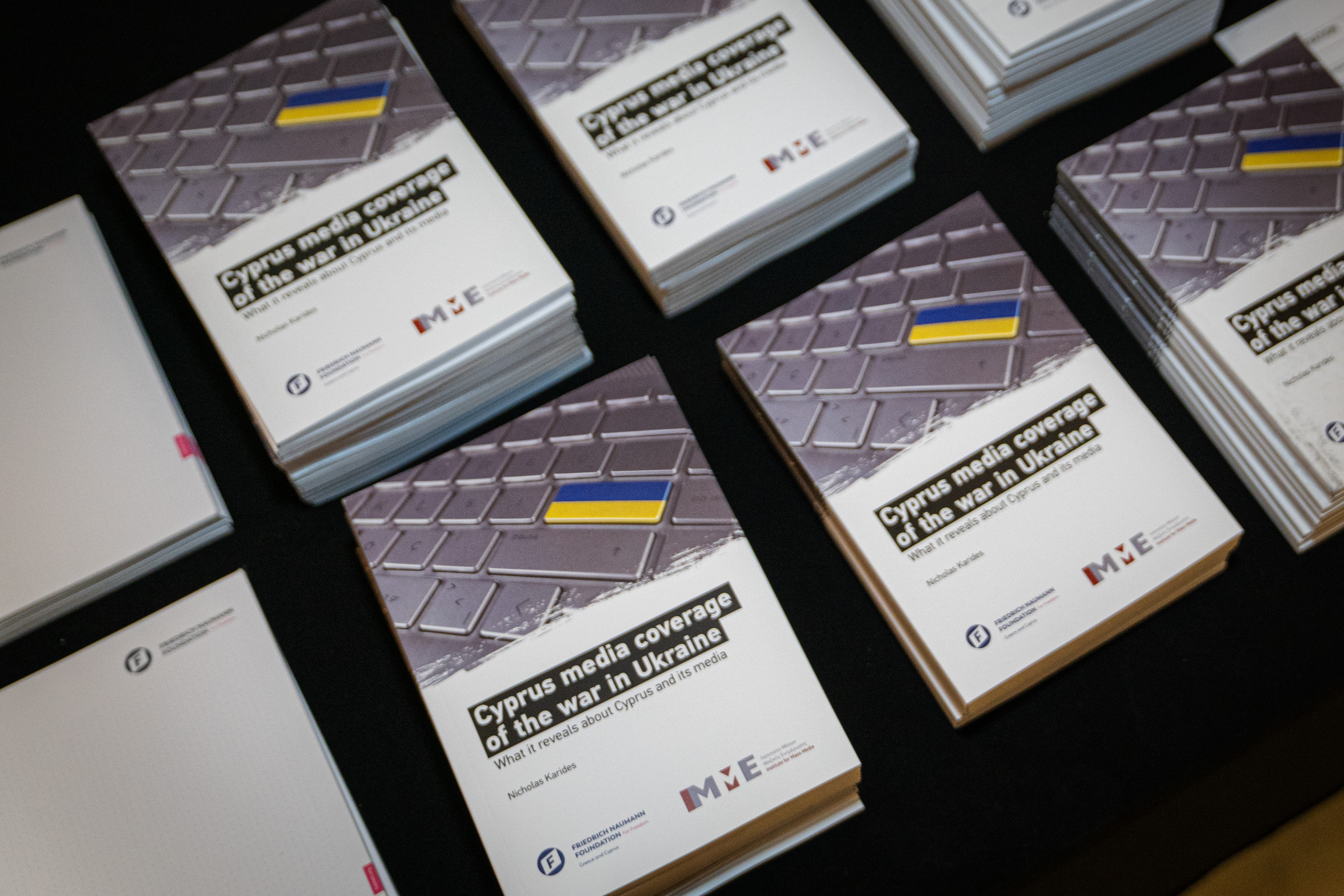
The Institute for Mass Media and the Friedrich Naumann Foundation for Freedom - Greece Cyprus held a panel discussion in Nicosia, Cyprus, on 7 December on the occasion of the release of a study on how the media in the Republic of Cyprus covered the early stages of Russia’s invasion of Ukraine. The study elaborated by the Institute with the support of the Friedrich Naumann Foundation captures the content and tone of the coverage in the first months of the war, the political and economic context in which it was formulated, and what it revealed about the country’s media ecosystem.
The event was addressed by Nicos Peristianis, chairman of the Board of the Institute and executive president of the Universitas Foundation, and Alona Tatarova from the Friedrich Naumann Foundation office for Greece and Cyprus. Nicholas Karides, director of the Institute presented the study’s main findings and John Ioannou from Kathimerini newspaper provided an overall assessment. Participants from the diplomatic corps, academia, and the media engaged with the speakers in the discussion that followed.
The study found that the Cyprus media’s initial response to the invasion was hesitant and reserved but gradually became more engaged and pragmatic as the war intensified. It was not much different to the initial stance of the Cypriot government and of the broader Cypriot political establishment. But as the government managed very quickly to adjust to the reality of what was going on - understanding what it would mean to Cyprus’ image and its standing in the European Union if it were to dither and remain attached to its instinctive defence of Russian interests - the socio-economic establishment and parts of the media took longer to adapt to this reality.
The study considered that the media’s response was woven into many aspects of the country’s existence, its social and cultural norms, the mechanics of its economy, the scars from the collapse of the country’s financial system ten years ago, the emergence of a new affluent class linked to property development, passport schemes etc. and the influence of the Communist Party. But it is also related to the actual poor financial state of the media, growing commercial influence in the media, the deteriorating quality of the journalism produced, challenges to editorial independence and issues of self-censorship.

